Iran's Sunni Leader Condemns Government Closure Of Prayer Rooms
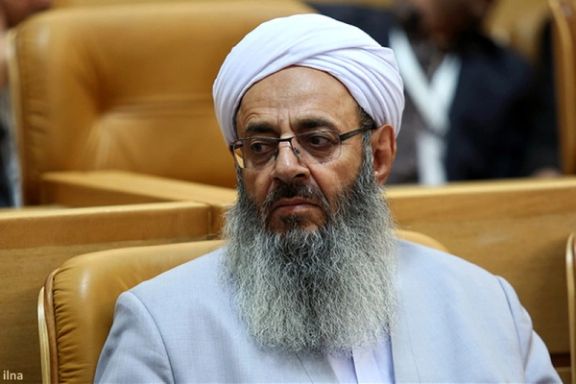
Outspoken Iranian Sunni leader Mowlavi Abdolhamid has stated that regime forces have shut down a number of Sunni prayer rooms in Mashhad and Tehran.

Outspoken Iranian Sunni leader Mowlavi Abdolhamid has stated that regime forces have shut down a number of Sunni prayer rooms in Mashhad and Tehran.
In a sermon delivered at the Friday prayer service in the Sunni-majority city of Zahedan in the southeast, Abdolhamid said the prayer rooms were "trouble-free", and "nothing was said against" the Shiite clerical government.
Since Mahsa Amini's death in mid-September 2022 and the nationwide uprising that followed, Zahedan has become the epicenter of protests against the Islamic Republic.
In recent weeks, tensions have increased between the Sunni Baluch minority in the region and Islamic Republic authorities.
As reported last week, security and law enforcement forces and "armored bulletproof military vehicles” were deployed at some crossing points in the Sistan-Baluchistan province before the weekly Friday sermon of Mowlavi Abdolhamid.
Currently, Iranian authorities are being criticized for failing to punish those responsible for Zahedan's 'Bloody Friday' on September 30, 2022, when security forces fired at protesters.
It is estimated that nearly 100 civilians, including women and children, were killed in Zahedan, the capital of Sistan-Baluchistan province, when they peacefully protested against the government.
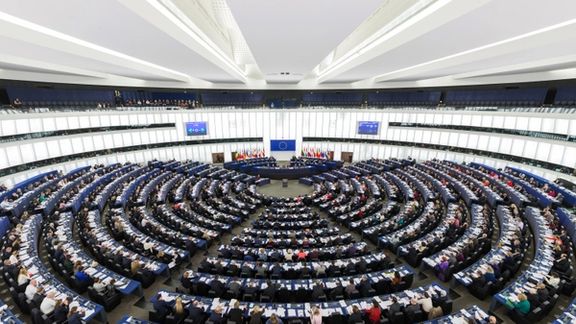
The European Parliament has condemned the deterioration of the human rights situation in Iran and urged the release of arbitrarily detained activists and foreign nationals.
“Parliament strongly condemns the deterioration of the human rights situation in Iran, and the brutal murders of women by the Iranian authorities, including the 2023 Sakharov Prize laureate Jina Mahsa Amini,” a resolution adopted Thursday by European lawmakers by 516 votes in favor, 4 against, and 27 abstentions said.
Members of the European Parliament also urged the Iranian authorities to immediately end “all discrimination against women and girls, including mandatory veiling, and to withdraw all gender discriminatory laws.”
Arbitrary detention, withholding medical treatment to prisoners, police violence, torture, capital punishment, and the alarming rise in the number of executions was also “strongly condemned” by the European Parliament.
The resolution demanded the immediate release of all victims of arbitrary detention and human rights defenders, including Nobel Peace Laureate Narges Mohammadi, political activist Sepideh Gholian (Qoliyan), women’s right activist Golrokh Iraee, labor activist Nasrin Javadi and political activist Bahareh Hedayat all of whom are held at Tehran’s Evin Prison.
The European Union needs to launch a strategy to counter the Islamic Republic’s “hostage diplomacy”, the resolution said and demanded the immediate and unconditional releases of several EU citizens held in Iran including a Swedish EU diplomat and an elderly Austrian.
What has come to be known as the Islamic Republic’s hostage diplomacy involves the arbitrary arrest of foreign nationals and dual citizens to use them as bargaining chips in dealings with western countries.
Johan Floderus, a young Swedish EU diplomat, for instance, was arrested at Tehran airport in April 2022 after what was described as a private tourist trip with friends.
Iranian authorities have accused Floderus who is also being held at Evin Prison since then of espionage, a charge they often use to justify the arrest of foreigners and dual nationals.
Iran is also holding a Swedish-Iranian doctor, Ahmadreza Djalali (Jalali). Djalali who was arrested in 2016 during an academic visit to Iran was sentenced to death in October 2017 on charge of espionage for Israel.
In April 2022 Iran tried to ramp up pressure on Sweden to free Hamid Nouri who Sweden had put on trial over the mass execution and torture of political prisoners in July and August 1988, by threatening to execute Djalali. Nouri is currently serving a life sentence in Sweden.
The 73-year-old Austrian-Iranian businessman, Massud Mossaheb who is serving a 10-year prison term for vague national security offences is another EU citizen Iran has been holding since 2019.
Despite poor health prior to his imprisonment which required regular specialist medical treatment, Mossaheb has been denied access to adequate medical care and to specialist medical professionals outside prison.
Members of the European Parliament reiterated their call in their resolution for the initiation of criminal investigations into “crimes committed by the Iranian authorities under universal jurisdiction” while demanding designation of the Revolutionary Guards (IRGC) as a terrorist organization and sanctions against human rights violators in Iran. These include Supreme Leader Ali Khamenei and President Ebrahim Raisi.
The European Parliament also urged the European External Action Service and member states to support the Iranian Sakharov and Nobel Prize laureates.
Prominent lawyer Nasrin Sotoudeh and dissident filmmaker Jafar Panahi jointly won the European Parliament’s Sakharov Prize in 2012. Both have been prosecuted, imprisoned, and banned from leaving the country on charges such as “assembly and collusion [to overthrow the regime]” and propaganda against the Islamic Republic.
Prominent human rights defender Narges Mohammadi won the Nobel Peace Prize in October this year while in prison "for her fight against the oppression of women in Iran and her fight to promote human rights and freedom for all.”
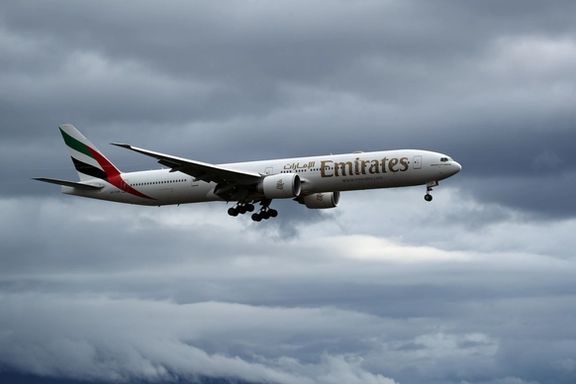
Recent electronic interference incidents for commercial flights near Iran have led to "unthinkable" navigational issues that cripple airliners' guidance systems, according to Vice magazine's report.
The GPS signals were “spoofed” in these incidents in order to fool planes into believing they were flying miles away from their actual location.
Reports of these attacks have been appearing since late September when Forbes initially disclosed that an international group of pilots and aviation professionals, Ops Group, was compiling data to be made public.
Over the past five weeks, the Ops Group has tracked more than 50 incidents over the Middle East but also identified a distinct new type.
The group states, that there is currently no solution to this new type of attack "with its potentially disastrous effects and unclear cause.”
While the entities behind the attacks are still unknown, the possible source of this new type of "spoofing" is the eastern periphery of Tehran, according to Todd Humphreys, a University of Texas, Austin, professor who researches satellite communications.
Although milder meddling with airliner navigation systems has been present in the skies over the Middle East and specifically near Syria since 2018, this kind of powerful “spoofing” is new.
"The spoofing corrupts the Inertial Reference System, a piece of equipment often described as the brain of an aircraft,” the report said.
A Canadian news outlet revealed in 2021 that Iran jammed GPS when it shot down an airliner over Tehran. Iran's Revolutionary Guards shot down a Ukrainian civilian airliner, flight PS752 on January 8, 2020.
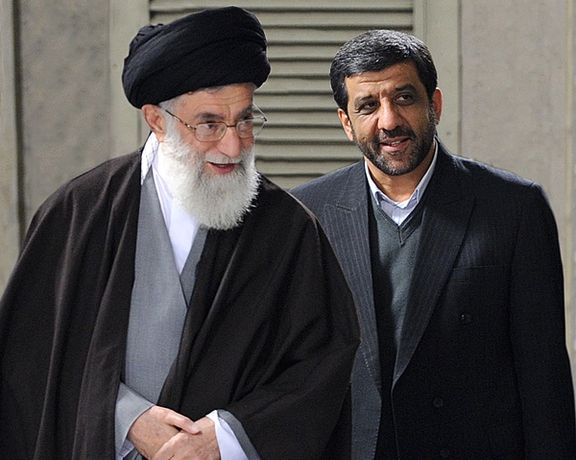
A former Revolutionary Guard (IRGC) officer, Ezzatollah Zarghami, has admitted to providing military training to Hamas forces, including the use of missiles in the underground tunnels in Gaza.
Zarghami, who now serves as Iran's Minister of Tourism and Cultural Heritage, discussed on Iranian state television on Wednesday how the IRGC provides military support to the "Resistance" forces, including Hezbollah and Hamas.
“The Axis of Resistance,” referring to Tehran-backed forces in the region, includes Palestinian militant groups, Houthis in Yemen, the Lebanese militant group Hezbollah, and others.
Zarghami, sanctioned by the EU for his role as the head of Iranian state TV, explained that he was in charge of providing the Fajr-3, a medium-range ballistic missile, to Palestinian and Lebanese militias.
"I say this with pride, and we don't fear anyone. As the Leader [Ali Khamenei] says, we help oppressed people wherever we see them," he said.
Iranian authorities have denied any direct involvement in the Gaza war, which began on October 7 when Hamas launched a massive terror attack from Gaza into Israel, resulting in at least 1,200 deaths, mostly civilians, and the taking of about 240 others hostage.
Following the attack, Israel launched a major offensive into Gaza, claiming, according to the Hamas-run health ministry, more than 14,000 lives.
After seven weeks of war, Israel and Hamas have initiated a four-day ceasefire and the release of some hostages, with both sides stating that the break is only temporary.
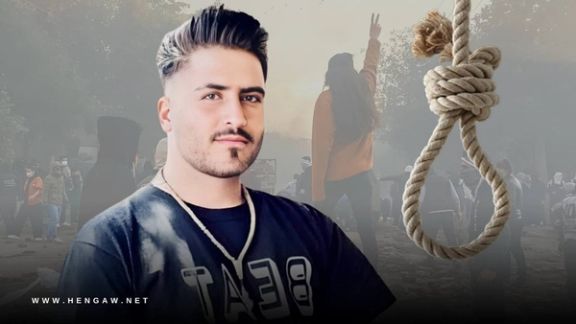
The execution of Milad Zohrevand, a young Iranian protester on Thursday, has shocked and angered anti-government activists and dissidents in Iran and abroad.
Zohrevand was secretly executed in the Malayer prison in the western province of Hamedan while his family were not allowed to see him for one last time. Hengaw Human Rights Organization said in a statement that Zohrevand had not been notified that his execution.
The 21-year-old was married and became a father while serving time in prison. It is not clear if he ever had the opportunity to see his newborn child before his death.
In June, Zohrevand was sentenced to death in connection with the “murder” of an IRGC officer named Ali Nazari during the nationwide uprising against the Islamic Republic. Zohrevand was arrested by security forces on October 26, 2022, at the height of the anti-regime protest movement, triggered by Mahsa Amini’s death in the custody of the hijab police.
Gohar Eshghi, the mother of the 35-year-old blogger Sattar Beheshti, who was killed under torture in Evin prison 11 years ago, released a video message after the Zohrevand’s execution.
"You're right; you start working at five in the morning. At the time of the call to morning prayer, you execute the youth or kill them under torture," Eshghi said in the video, addressing Supreme Leader Ali Khamenei, “do not kill these young people."
Executions take place around the time of Muslim dawn prayer in Iran.The time for the call for dawn prayer (called azan or adhan) is now associated with executions for Iranians.
Despite the claims made by the Iranian judiciary, no video has been released so far showing how the IRGC officer was killed. According to human rights activists and organizations, there are many contradictions in the charges levelled against Zohrevand.
Iran’s judiciary and security officials provided different and even contradictory data regarding the number of suspects that were arrested in relation to the “murder” of the IRGC officer.
Zohrevand was reportedly accused by prosecutors of being one of a group of five masked men who shot the IRGC intelligence agent as he confronted students demonstrating at the Malayer Faculty of Medical Sciences in October 2022.
Information received by Iran International indicates that Zohrevand was denied access to a lawyer and other basic rights of an accused throughout his detention. His family was also under intense pressure from the IRGC intelligence service not to make public statements about his case.
The execution comes two weeks after UN Secretary-General Antonio Guterres released a report highlighting a surge in executions in Iran.
According to the report, at least 419 people were executed, including 409 men and 10 women, between January 1, 2023 and July 31, 2023, marking a 30 percent increase compared to the same period last year. Iran is second only to China in the number of executions carried out annually.
At least eight people have been executed by the Iranian regime for their involvement in nationwide protests triggered by the death in custody of Mahsa Amini in September 2022.
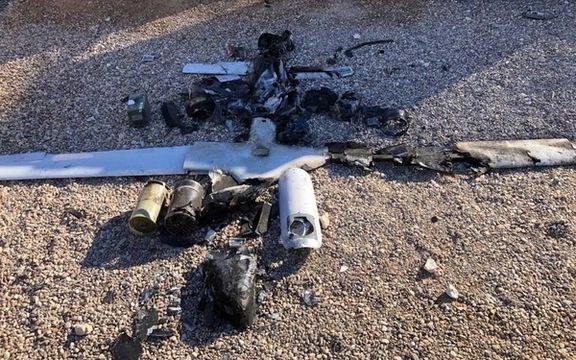
Iran-backed militant groups launched four more attacks against US bases in Iraq and Syria on Thursday with rockets and drones, but there were no casualties or damage.
Reuters quoted a US official, who spoke on the condition of anonymity, as saying that US and international forces were attacked at two sites in northeastern Syria with multiple rockets and a one-way attack drone. Since war broke out between Israel and Hamas, Iranian proxy forces have launched more than 70 such attacks, leaving many servicemen injured.
In Iraq, multiple one-way drones were launched at the Ain Al-Asad airbase west of Baghdad and a drone was launched at a base housing US force near Erbil airport in northern Iraq.
A group calling itself the Islamic Resistance in Iraq, which analysts say is a catch-all for several Iran-aligned Iraqi armed groups, had claimed attacks on those locations earlier in the day.
The attacks come the day after the U.S. struck the Iran-aligned Kataeb Hezbollah (KH) armed group south of Baghdad in an attack that KH said had left eight members dead.
The attack was condemned by the Iraqi government as escalatory and a violation of sovereignty.
US officials said the United States had struck Iran-backed groups after an escalation in their attacks that have targeted US and international forces dozens of times. The US has retaliated just a handful of times.
As of Thursday, there had been 36 attacks in Iraq and 37 in Syria, the US military official said.
Iran has avoided direct military involvement in the war, but has used its network of armed groups to target both Israel and US forces in the region.